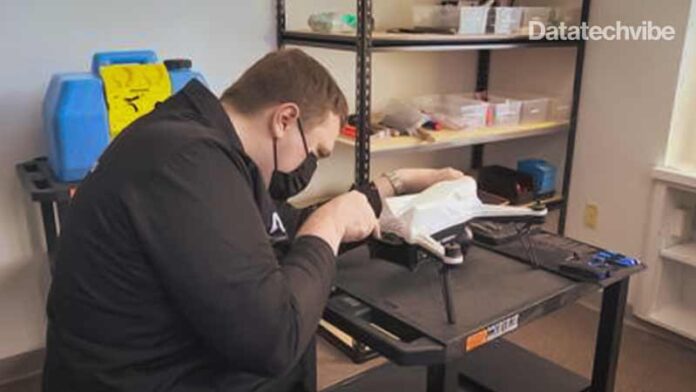Aquiline Drones Corporation (AD) announced the acquisition of ElluminAI Labs to support further development of its AI framework called Spartacus. This is AD’s second strategic acquisition in the company’s pre-IPO plan.
This AI acquisition enables AD to deliver superior deep learning AI frameworks throughout its entire drone technology ecosystem which includes drone pilot training, drone manufacturing, commercial drone operations and cloud solutions on a global scale.
AD’s Spartacus AI is modular, with different sets of services and proficiencies. It can learn specialised skills on a case-by-case basis, while offering broad integration ability across various environments. The AI will deliver key capabilities across AD’s continuum of drone and cloud-based services.
“Our acquisition of ElluminAI will produce a powerful system that delivers a modular, deep learning cognitive framework, capable of flight optimisation, training assistance and data analysis for the most sophisticated business processes involving commercial drones to essentially improve a company’s profitability. This is not only ground-breaking technology, but sky-breaking technology as well!” said Barry Alexander, Founder and Chairman of Aquiline Drones. “What’s more is the superior and scientific architecture that ElluminAI brings to the table that will monitor and manage the AD ecosystem more accurately, skillfully and successfully.”
Alexander notes that a main difference between Spartacus and other digital agents is its advanced architecture, based on artificial neural networks, which provide the ability to get smarter and more efficient over time, especially with increasing amounts of data.
Also Read: How Drone Technology Is Changing Industries
As a powerful AI framework that is easy to integrate across environments, Spartacus can seamlessly and simultaneously traverse activities at work and in the home; especially while traveling. Such activities include managing home security, energy usage, vehicle maintenance, personal schedules, and other connected devices, while offering options for anticipated activities based on ‘habit recognition’.
Similarly, Spartacus can be enhanced for different IoT (Internet of Things) settings, such as factory management, logistics, construction site surveillance, precision farming, facility management and maintenance advisor – to name a few.
Alexander highlights the role of Spartacus in the handling of UAV traffic across the National Airspace System (NAS) through AD’s Command and Control (C2) capability on the AD Cloud. Here, Spartacus gathers data from the Federal Aviation Administration (FAA) and other official sources, combines it with weather and additional external information, to provide crucial, real-time notifications and advisories to operation planners and drone pilots before and during the mission.
This full life-cycle support includes a comprehensive set of functions that optimise flight safety and provide skills beyond standard UAV requirements. The result is the delivery of real-time data insights from AD Cloud connected drones to AD C2, so business owners, UAV operators and operation planners have greater control of their activities.









